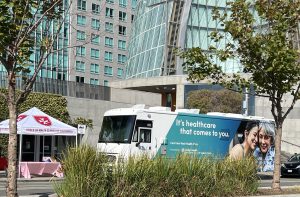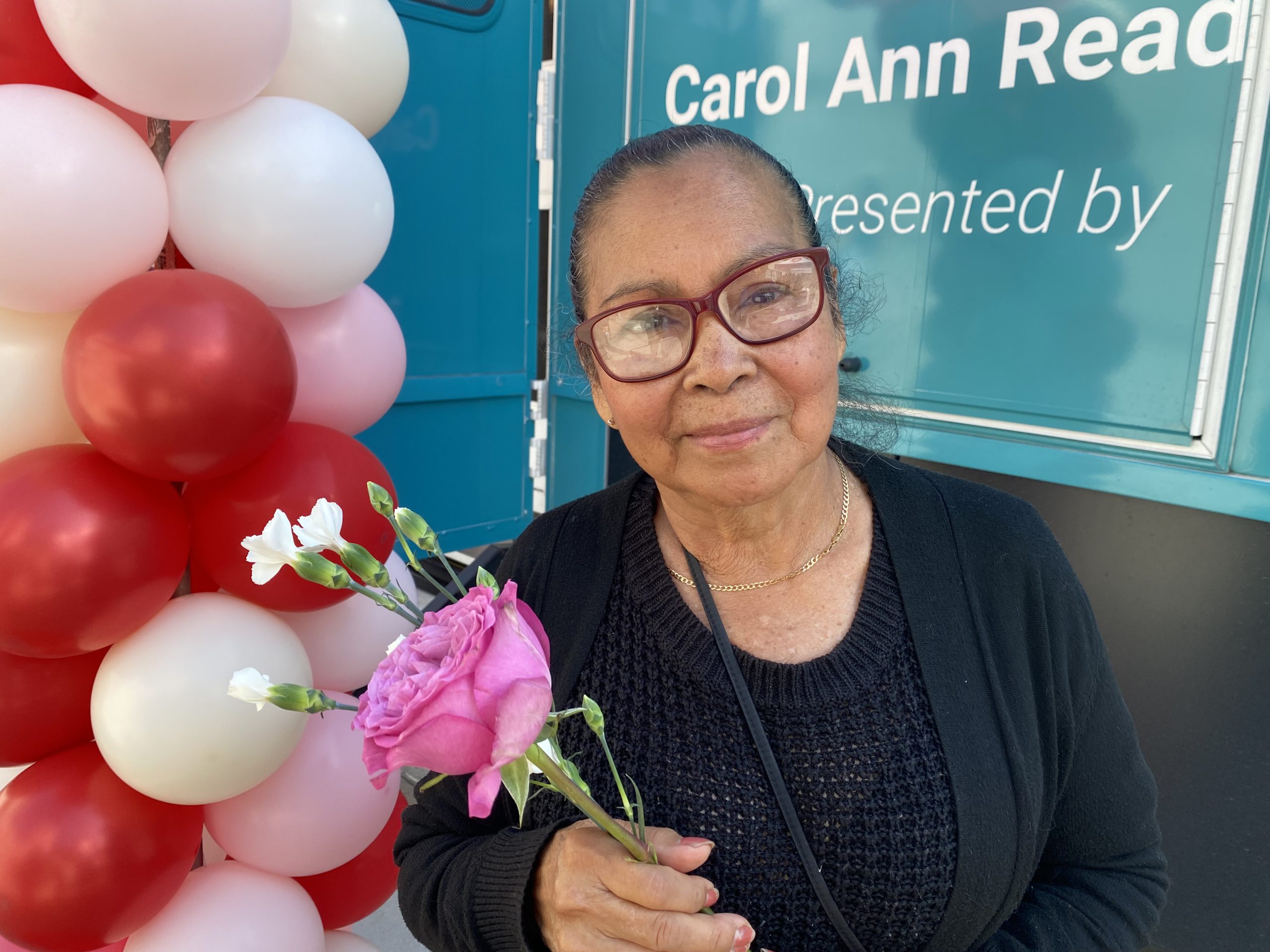Teresa T. had never had a mammogram. She’d heard they were painful and was afraid. But with encouragement from her daughter, she decided to take advantage of a screening offered through a collaboration between not-for-profit Sutter Health and the Order of Malta Clinic of Northern California, where she receives care.
The recent no-cost-to-patients screening event in Oakland marked the fifth anniversary of the mobile mammography program, presented by the Carol Ann Read Breast Health Center at Sutter’s Alta Bates Summit Medical Center. Since launching in fall 2020, the specially outfitted vehicle has provided more than 450 mammograms to Order of Malta patients.

The Carol Ann Read Breast Health Center’s Mobile Mammography Vehicle provides mammograms in the community.
“For these women, it often comes down to a choice between buying groceries or paying for health coverage,” says Mary Rudolph, nurse practitioner at the clinic. “Without access to affordable care, they live with the constant anxiety of not knowing what’s happening with their health. It’s striking to me how many of our patients in their 50’s and 60’s have never had a mammogram before.”
Rudolph says her patients are more likely to seek preventive care when services are offered in their community and in their preferred language. “That’s why it’s so important to help our patients feel comfortable,” she says.
“We appreciate this collaboration with Sutter Health that delivers this important service to our patients while also providing reassurance that their health care needs are being met,” says Rudolph.
“We know having a mammogram can be intimidating, so we work with community clinic partners to make the experience as welcoming as possible,” says Dr. Linda Gordon, radiologist and medical director of the mobile mammography program at the Carol Ann Read Breast Health Center. “Providing services close to home and in languages like Spanish, Tagalog or Mandarin — if needed — makes a big difference.”
After her screening, Teresa felt relieved and happy. “I’m so glad I got my mammogram,” she said through an interpreter. “It didn’t hurt, the van was nice inside and the staff made me feel so comfortable.”
State-of-the-Art Technology on Wheels
The mobile unit is equipped with the same 3D mammography technology — digital breast tomosynthesis — used at Sutter’s brick-and-mortar breast health centers. All images are reviewed using AI-powered diagnostic tools that help detect more breast cancers earlier, reduce false positives and improve treatment outcomes.
This secure AI platform, powered by Ferrum Health’s platform, now supports more than 60 imaging sites across the Sutter system.
Read more about how Sutter Health is deploying AI-powered breast health diagnostic tools to optimize performance by standardizing care, accelerating detection and delivering insights to clinicians and patients alike.
Expanding Access, Saving Lives
Improving access to breast cancer screening is critical, says Dr. Rita Kwan-Feinberg, president of the medical staff at Alta Bates Summit and a breast cancer surgeon with Sutter East Bay Medical Foundation.
“Most women diagnosed with breast cancer have no symptoms — their cancer is detected through screening mammography,” Dr. Kwan-Feinberg explains. “When breast cancer is diagnosed at an early stage, the five-year survival rate is 99%. And we know that early detection through regular mammograms remains the best defense.”
Dr. Gordon adds, “Since launching the mobile unit, we’ve performed 3,700 screening mammograms for women in the Bay Area. Many of these women might not otherwise receive a mammogram or might only get one after their cancer had progressed.”
Legacy of Care
The mobile mammography vehicle was launched in October 2020 with support from a generous grant by Peter Read, co-founder of Grocery Outlet, in honor of his wife Carol Ann Read, who passed away from breast cancer. Additional funding came from a Sutter match grant and donations from community members.
The program continues to honor Carol Ann’s legacy by bringing life-saving screenings to women who need them most.





